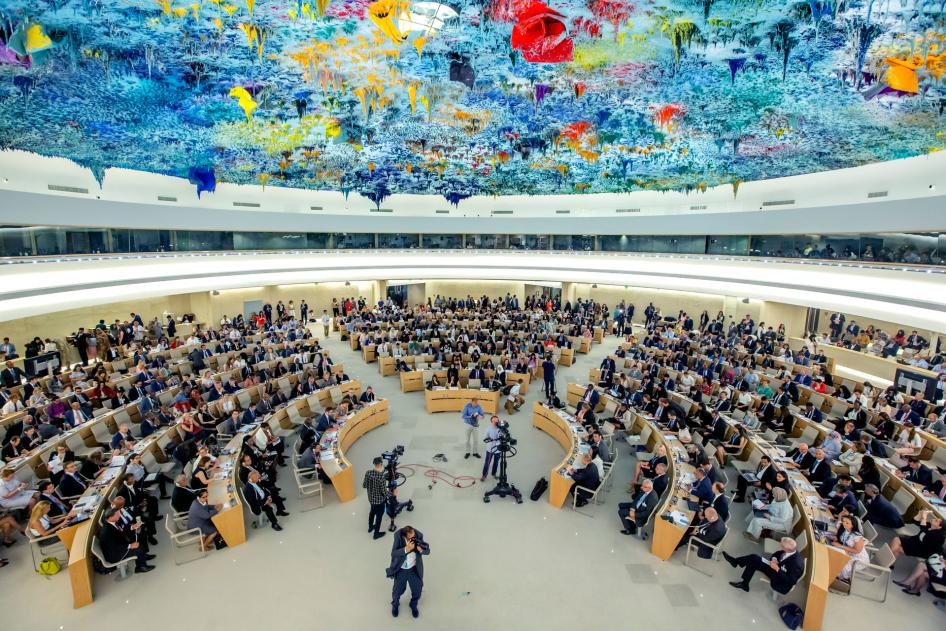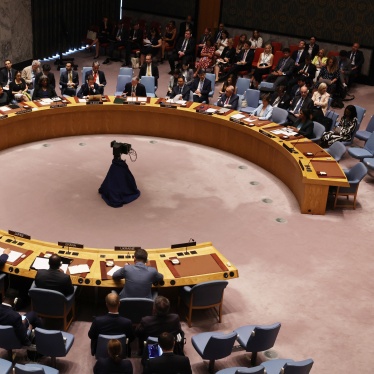We welcome the report by the Special Rapporteur and her ongoing efforts to shine light on the dire rights situation in Eritrea despite many challenges.
Despite Eritrea’s engagement with certain UN mechanisms, including the Committee on the Elimination of Discrimination Against Women, Eritrea still refuses to constructively engage with much of the UN rights system, including OHCHR and the mandate holder, who the government recently denounced as “the mouthpiece of Eritrea’s archenemies.” Eritrea’s denial of access and refusal to cooperate with this council’s mechanisms violates their membership obligations.
As both the Special Rapporteur and the High Commissioner for Human Rights have reported, there have been no tangible improvements in the dire rights situation in Eritrea, including against the benchmarks which the Council had requested.
Since the last dialogue, the country has taken no steps to reform its notorious indefinite national service system. Thousands of children were forced to go to the Sawa military camp to attend their final year of high school, where they face abuse and are channeled into indefinite national service.
Individuals continue to be held incommunicado and detained indefinitely, denied basic due process rights, without access to legal counsel, judicial review, or family visits, some for decades. Detention facilities are overcrowded and unsanitary - made worse by Covid-19 restrictions which denies many detainees vital food parcels and sanitary products their families could bring.
The government could have implemented greatly needed rights reforms during Covid-19, notably by allowing students in Sawa to return home, and to release political detainees and low-risk offenders, but such calls from the Special Rapporteur and Human Rights Watch among others have fallen on deaf ears.
As the Special Rapporteur states, the government still clamps down on religious freedoms and religious institutions. When the Catholic Church leadership called for basic reforms in 2019, the government responded by taking over important religion-affiliated schools and confiscated all Catholic health facilities, leaving people in parts of the country without access to healthcare.
In the first quarter of 2020, thousands of Eritreans, many children, fled into Ethiopia - a telling sign of the lack of tangible improvements in the human rights situation for Eritreans back home.
The Council has given Eritrea a number of opportunities since this mandate was created to offer it a constructive way forward, none of which have resulted in a shift of approach by the Eritrean government. Eritreans facing the brunt of this ongoing repression back home deserve to know that their government will continue to face Council scrutiny.








